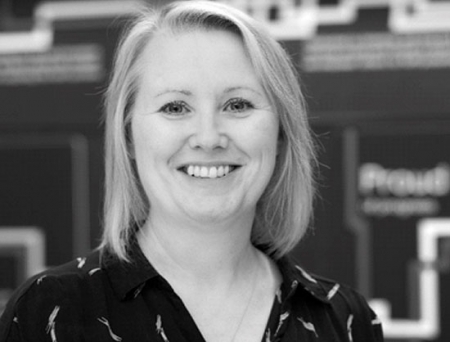H.E.L Group Ensures Safety and Efficiency in Chemical Synthesis

Louise Madden , CEO, H.E.L Group
2024-08-08
Q: How does H.E.L Group support process optimization, safety, and scale-up in the life sciences industry?
Louise Madden: H.E.L develops and manufactures innovative scientific instruments and software for the chemistry, safety, and biotech industries to unleash the full potential of the scientific community. For more than 30 years, we have been equipping scientists with the right tools and knowledge to engineer efficient new processes and develop molecules that benefit the world and its inhabitants.
H.E.L has a long history of solving complex challenges for customers and, as part of our mission to help create a healthier, sustainable, safer world, we have developed a comprehensive portfolio of products to facilitate bioprocessing, battery testing, and chemical synthesis. This includes the BioXplorer range of bioreactors and the PolyBlock systems for process development, optimization, and scale-up.
Q: How does the collaboration with Paralab and ProAnalytics improve customer support in biotechnology and chemical synthesis industries?
Louise Madden: The latest expansion to our distributor network enables us to extend our geographical reach in the life science sector and more closely support customers in USA, Spain, and Portugal. By collaborating with application-specific distributors with extensive experience in the biotechnology and chemical synthesis industries, we can provide our customers with technical and field application support, enabling development and optimization of bioprocesses.
Our BioXplorers will be available in the US through ProAnalytics, a company dedicated to providing excellent process analytical technology solutions, and Paralab will supply BioXplorers and the PolyBLOCK Compact Automated Parallel Synthesis Platform in Spain and Portugal.
Q: How does the BioXplorer 400XL manage precise additions of liquids and gases?
Louise Madden: Launched June 2023, the BioXplorer 400XL and BioXplorer 400P are the latest products in H.E.L’s portfolio, further enabling efficient, cost-effective development and optimization of industrial bioprocesses.
The BioXplorer 400 XL features 8 configurable bioreactors, which can be controlled independently or in parallel, allowing for fast optimization of critical parameters for aerobic fermentations. Its modular design unlocks the versatility to choose from a range of processing monitoring measures, and allows accurate and precise additions of liquids and gases, controlled by up to four sets of peristaltic pumps and up to two sets of in-house calibrated mass flow controllers respectively, and the multi-sparger approach can be used to maintain strict control of dissolved gas levels safely.
The system can be controlled by our WinISO software, monitoring parameters on interest, automatically acting on them and recording experimental data, facilitating complete automation of fermentation experiments.
Q: What impact does H.E.L Group aim to achieve in the biotechnology industry through its innovative solutions?
Louise Madden: BioXplorers have a range of applications in the biotechnology industry, from reducing carbon emissions in syngas production to simulating the gut microbiome.
Decarbonization using syngas fermentation is reducing carbon emissions by exploiting organisms capable of converting carbon-containing industrial waste gases into useful fuels and chemicals. The BioXplorer 400P enables high-pressure fermentation to drive up gas solubility, resulting in increased product yields.
The bioreactors can also facilitate microbiome simulation. The gut microbiome has a significant impact on human health, but its dynamic and multicompartmental nature makes it difficult to study. BioXplorers can be configured to simulate the microbiome, enabling research into the effects of probiotics, age, ill health, and shifts in microbiota.
Q: How does H.E.L Group ensure the flexibility and efficiency of its PolyBLOCK platform and how does its Parallel Synthesis Platform maximize laboratory productivity?
Louise Madden: Building a library of potential candidate lead molecules with desired characteristics efficiently, requires a targeted parallel synthesis approach, where the ability to run multiple experiments simultaneously dramatically improves productivity.
The PolyBLOCK platforms are highly versatile automated parallel synthesis platforms, with either 4 or 8 independently controlled reactor zones, and a compact configuration designed to facilitate benchtop studies. Its modular layout enables capabilities of the system to be easily expanded and adapted, and high-pressure variants with stainless steel and Hastelloy reactor options support the study of hydrogenations and other similar reactions. This allows researchers to optimize reaction parameters in parallel, investigating multiple synthetic routes and identifying optimal conditions for scale-up, conversion efficiency, and economic viability.
Q: Any expansion plans or research measures H.E.L Group is planning to stay ahead of industry needs?
Louise Madden: We work closely with research institutes and universities globally to develop new cutting-edge technologies and stay ahead of industry needs. This includes our recent partnership with the Indian Institute of Technology Kanpur to develop new testing laboratories to conduct research into battery storage, new chemistry development, and thermal characteristics.
We use our own and third party cookies to produce statistical information and show you personalized advertising by analyzing your browsing, according to our COOKIES POLICY. If you continue visiting our Site, you accept its use.
More information: Privacy Policy







